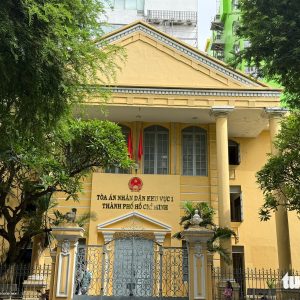Commercial Arbitration in Vietnam: Concepts and benefits

1. What is the concept of commercial arbitration?
Commercial arbitration is a method of resolving disputes outside of court in which the disputing parties agree to bring the case before one or more arbitrators for arbitration. In Vietnam, commercial arbitration is regulated by the Commercial Arbitration Law 2010, and is considered an effective alternative to resolving disputes in court.
Arbitrators are experts with extensive experience and knowledge in the relevant field, ensuring fairness and objectivity in the arbitration process. The arbitrator’s award is binding on the parties and is enforced in the same way as a court judgment.
2. Common types of commercial arbitration
Commercial arbitration in Vietnam is classified into many forms, depending on the method and scope of dispute resolution. Here are some popular types:
2.1. Arbitration by case:
This is a form of arbitration in which the disputing parties agree to choose an arbitrator for each specific case. This form is often applied when the parties do not have a previous arbitration agreement.
2.2. Institutional Arbitration
This form uses arbitration organizations such as Bigboss International Commercial Arbitration Center (BBIAC) or other organizations to resolve disputes. These organizations have their own regulations and dispute resolution processes, ensuring professionalism and efficiency.
2.3. Interim Referee
Interim arbitration is used to resolve minor disputes or urgent matters before formal arbitration takes place. This is a quick and cost-effective form.
3. Benefits of commercial arbitration for businesses
Commercial arbitration brings many benefits to businesses, especially in the context of international economic integration and the increase in cross-border commercial transactions. Here are some outstanding benefits:
3.1. Save time and costs:
Commercial arbitration is often quicker and less expensive than court proceedings. The parties can flexibly agree on the time and place of dispute resolution, helping to significantly save time and costs.
3.2. Security and reputation protection:
The arbitration process is usually not public, helping to keep information confidential and protect the reputation of the business. This is especially important for disputes that are sensitive or involve trade secrets.
3.3. The judgment is binding and easy to enforce:
Arbitral awards are binding on the parties and are recognized and enforced in many countries, especially countries that have signed the New York Convention on the recognition and enforcement of foreign arbitral awards.
3.4. Expert in the field: Arbitrators are usually experts with extensive expertise in the field of dispute, ensuring a fair and accurate arbitration process.
4. How to resolve disputes using Bigboss International Commercial Arbitration Center
To resolve disputes by commercial arbitration at BBIAC. Customers can write in the contract one of the following two contents:
4.1. Model Arbitration Clause
“Any dispute arising out of or in connection with this contract shall be resolved by arbitration at the BIGBOSS International Commercial Arbitration Center (BBIAC) in accordance with its Rules of Arbitration”.
In addition, the parties may add:
(a) the number of arbitrators is [one or three].
(b) the place of arbitration is [city and/or country].
(c) the law applicable to the contract is [ ].*
(d) the arbitration language is [ ].** Note: *
Only applicable to disputes with foreign elements **
Only applies to disputes with foreign elements or disputes in which at least one party is a foreign-invested enterprise.
4.2. Model Arbitration Clause under simplified procedure
“Any dispute arising out of or in connection with this contract shall be resolved by arbitration at the BIGBOSS International Commercial Arbitration Center (BBIAC) in accordance with its Rules of Arbitration. The parties agree that the arbitration proceedings will be conducted in accordance with the Summary Procedures set out in Article 37 of the BBIAC Arbitration Rules.”
In addition, the parties may add:
(a) the place of arbitration is [city and/or country].
(b) the law applicable to the contract is [ ].*
(c) the arbitration language is [ ]. **
Note:
* Only applies to disputes with foreign elements
** Only applies to disputes with foreign elements or disputes where at least one party is a foreign-invested enterprise



